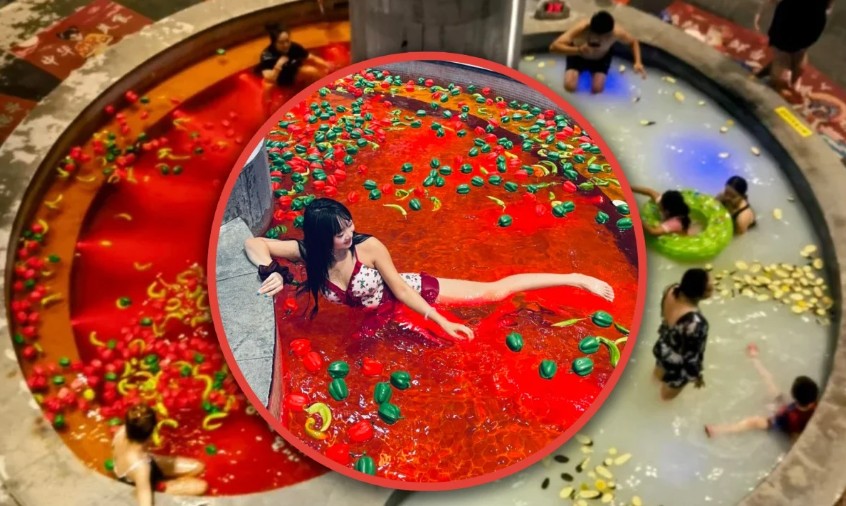Eat or Bathe? China's Chili-Bath Obsession Hits a New Level
In Harbin, a restaurant-turned-spa has installed a five-meter chili bath, shaped like a pot that’s been split in two. One half is a fiery red bath studded with chili peppers, eggplant, and cabbage—the look of a spicy broth. The other half is pale, a milk-like pool with red dates and goji berries, mimicking a clear soup. The whole setup is meant to be a playful nod to hot pot culture rather than a traditional bath.

In This Article:
Two broths, one tub: Red chili and White milk pools explained
The red pool’s color comes from rose petals refreshed daily. The chili in the water is milder, claimed to stimulate metabolism and improve circulation. Entry costs 160 yuan and includes access to the baths, a buffet, and a sauna. The appeal is more about novelty than medical benefits, and the experience is open to all ages—with a 15–20 minute recommended swim limit to keep things moving.

Beliefs vs. science: Do chili baths help you?
There is no scientific proof that chili baths provide health benefits, just as there is none for milk baths. Some visitors talk about skin effects or breathing warmth, and even reference Cleopatra to defend such baths. In contrast, traditional Chinese medicine usually recommends hot baths with ginger, mint, and mugwort, not pepper. The chili bath story sits at a quirky edge of culture and wellness.

A culture clash: Food as spectacle and grandma's warning
The scene is visually funny: a kitchen staple turned spa attraction. Yet the writer feels a twinge of sympathy for the food itself and hears a grandmother’s old admonition: 'Don’t play with food.' It’s a critique of excess wrapped in a cultural curiosity.

Would you soak in chili soup? Share your thoughts
Would you dare to soak in a chili soup bath? The question invites readers to reflect on boundaries between food, wellness, and spectacle. Tell us what you think in the comments, and subscribe for more stories about surprising cultural trends.


